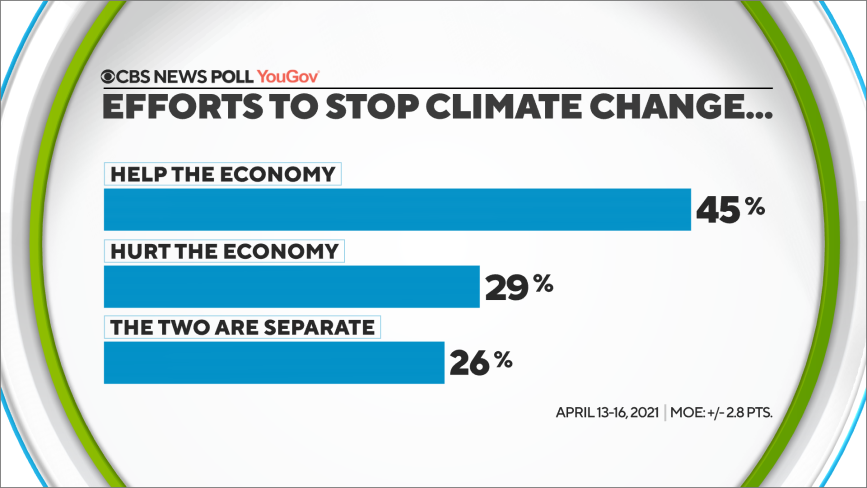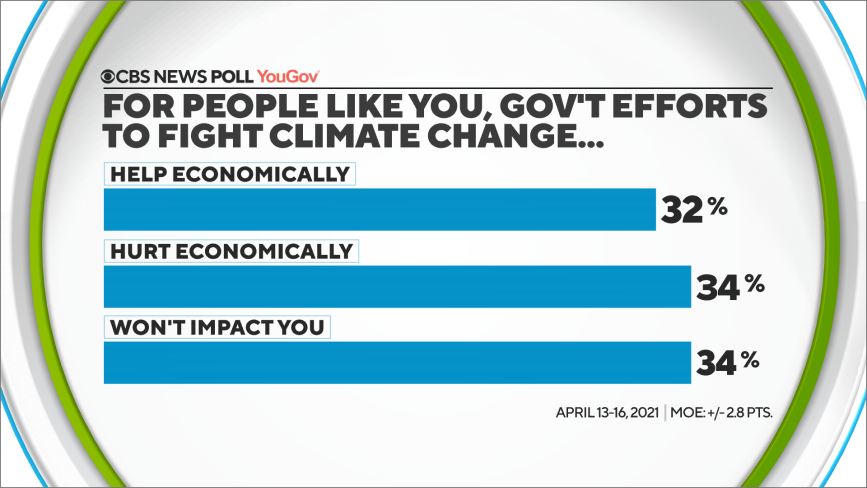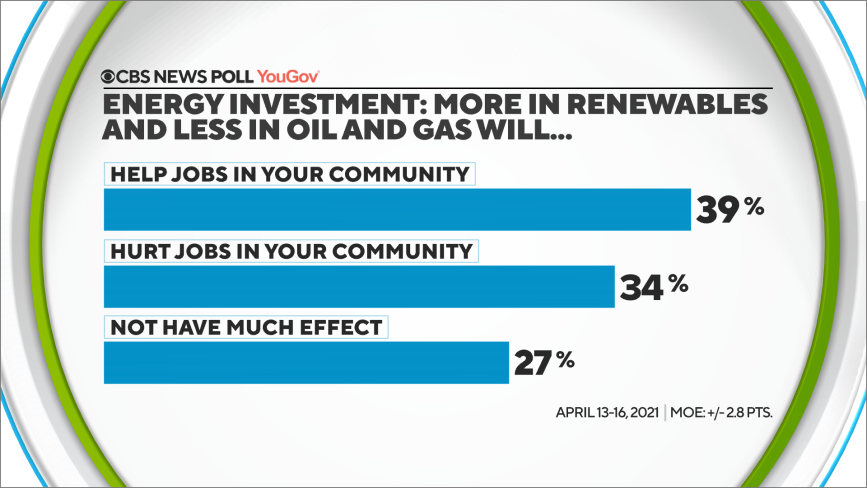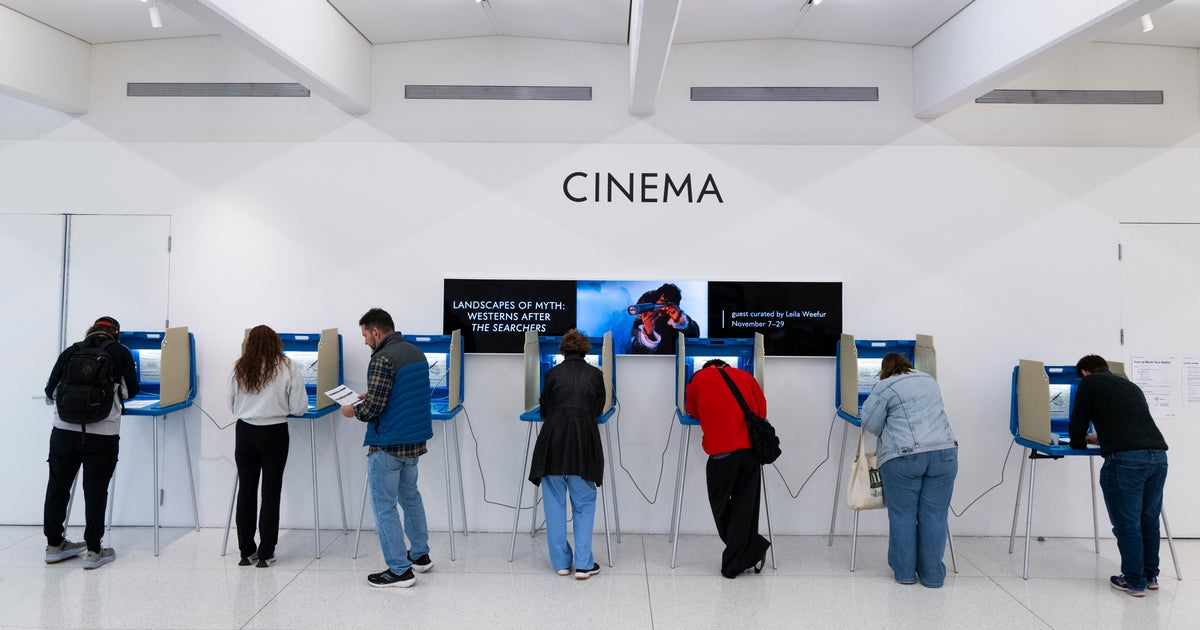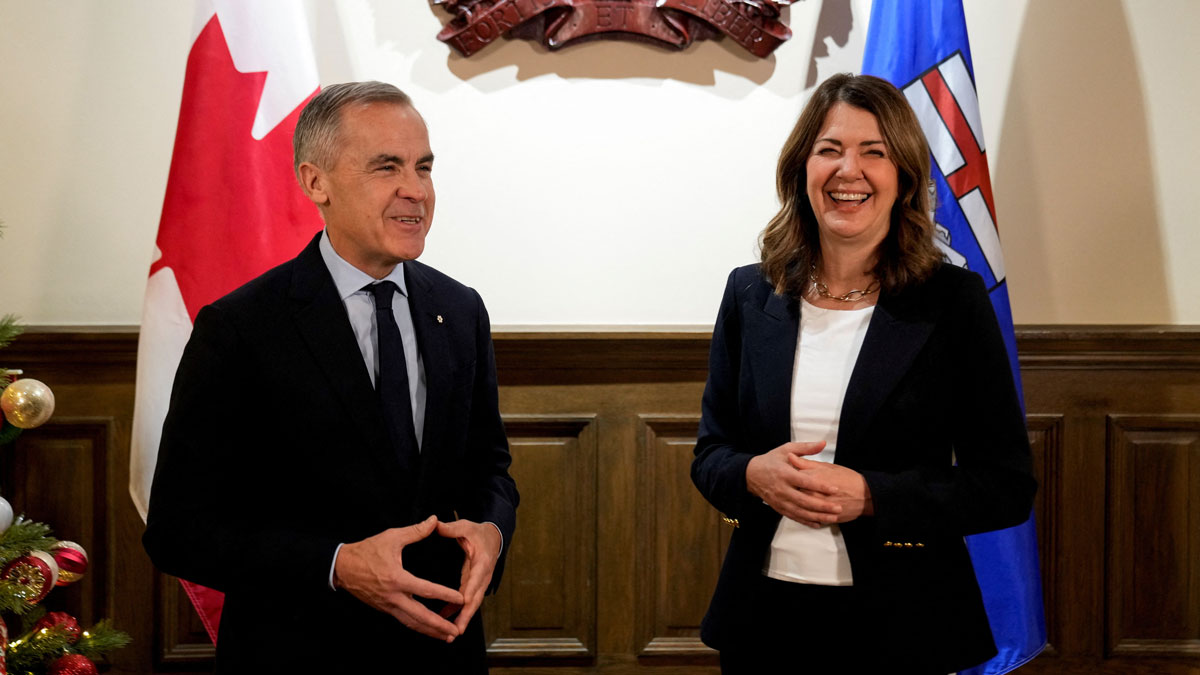CBS News poll: Eye on Earth — can fighting climate change be good economics?
Arguments about the environment through the years have often been framed as strict tradeoffs between either helping it or helping the economy. Naturally, that's reflected in a lot of our old poll questions over four decades of surveys, with a steady run of climate-or-costs-types of choices offered; would you pick the environment or the jobs? But for those urging more climate action today — and certainly for gauging some of the Biden administration's recent arguments — a key public opinion test may have shifted: now it may be whether people think action could also be good economics.
The answer, we found, is mixed. On one hand, more people say efforts to fight climate change help the economy than hurt it — and by double digits.
On the other hand, that "help" number still isn't quite a majority coalition, as a sizable quarter do not see a connection between what the U.S. does to fight climate change and the nation's economy. (Maybe that means they'll stay neutral, leaving the "help" view in the plurality, or maybe that's the group to watch, to see if they move either way over time. They're a little older, and working class, more so than those who think it'll help.)
Then there's the pocketbook test: most Americans think they're financially impacted either way by efforts to fight climate change, all but ensuring this topic will resonate. The people who think they'll be affected are split — half think efforts to fight it will hurt them more than help. This has a lot of ties to partisanship, even more so than where they live, or their education and income levels.
Even more specifically, people were asked if a U.S. transition to wind and solar and away from fossil fuels would be good for the U.S. economy and jobs in their community or not. People were slightly more positive about the economy overall and split on jobs in their community. Those who said fossil fuels played a major role in their area were a little more skeptical about the jobs impact for them, in particular, but the views were also tied to partisanship. Republicans tended to think that shift would hurt their community even if they lived in places they felt didn't have a large fossil fuel economy, and then especially if they did.
That reminds us again that when people look prospectively at larger policy impacts, they appear to use a partisan lens as much as any macroeconomic calculus.
This CBS News survey was conducted by YouGov using a nationally representative sample of 2,003 U.S. residents interviewed between April 13-16, 2021. This sample was weighted according to gender, age, race and education based on the American Community Survey, conducted by the U.S. Bureau of the Census, as well as the 2020 presidential vote and registration status. The margin of error is ± 2.8 points.

